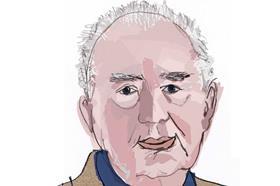My legal stars would include Sam Leibowitz in the Scottsboro Boys case and John A Clark in the less-known case of three African Americans accused of the 1930 murder of a white farmer in Scooba, Missouri. The all-white jury convicted them in less than half an hour mainly on the basis they were black and secondly because of confessions which had been whipped out of them.

Clark, a court-appointed lawyer, had at first been convinced the trio were guilty. It was only after the details of the beatings were admitted, with some relish, by the prosecution witnesses that he began to have sympathy for his clients. He had not been well and would admit later that he was ‘simply going through the form of a trial’. Now he took up their cause with vigour. Although the defending lawyers were entitled to $25 a client, the judge had feared reprisals from the locals and refused to authorise it. Clark did, however, receive a small sum from the National Association for the Advancement of Colored People (NAACP).
Clark and his wife, both of whom had political ambitions, were warned that these would be in jeopardy if he continued with the case. Nevertheless, he took it to the Mississippi Supreme Court where he was partially successful. Although the appeal was dismissed Justice Anderson dissented.
Clark may have avoided the crosses burned before Leibowitz’s lodgings in the Scottsboro case but, vilified locally, the case damaged his health and ruined both his practice and ambitions. In despair he wrote again to the NAACP and now, when secretary Walter White and the board discussed the case, chairman Louis Wright noted that, ‘anytime a white lawyer in Mississippi says things are bad and he needs help, then we have to help’.
Clark handed the case over to his friend Earl Brewer who, early in his career, obtained damages for the widow of Jonathan ‘Casey’ Jones, the train driver killed trying to stop the Cannonball Express crashing into a stationary train. It was Brewer who, financed by the NAACP, took the men’s case to the US Supreme Court which, in the celebrated decision Brown v Mississippi, quashed the convictions and ordered a retrial. But Clark is the one who should have the star.
James Morton is a writer and former criminal defence solicitor































No comments yet